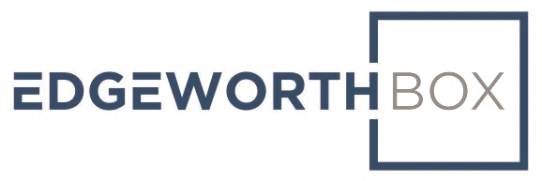I often remark that “nobody grows up wanting to be in procurement.” Maybe somebody out there did. I have not met them yet. When children are in school, they dream of more glamorous occupations: professional athlete, entertainer, politician, and now, influencer. Of course, not everyone is suited to be these things. Perhaps they lack the talent or the fanatical perseverance. These are vocations in which the winner takes most. For every Taylor Swift, there are a million anonymous others. Not everyone has the good fortune to be a superstar.
Most of us have to work for a living.
If we’re lucky, we find work that pays well and makes us happy, something that gives us purpose. I’ve been lucky to have several careers. In each case, I had roles that were well suited to my personality and to my needs at the associated moment in my life. When I was young, I craved action. When I was older, I sought deep knowledge about business and markets and people. Now, I want to help other people solve problems.
One of the biggest challenges I see in procurement is recruitment. How can organizations discover and entice the people who are best suited to making a career of it? This is a subset of a larger issue. How can we make procurement appealing, in general?
There has been a tremendous amount of turnover in procurement over the past several years for (at least) two reasons.
One, there is a natural demographic changing-of-the-guard, as skilled Baby Boomers and Gen X staff retire with their knowledge and experience. We’ve written about this previously.
Two, the Pandemic highlighted the strength or weakness of procurement groups. If you had a good one, the impact on the bottom line was tangible because they were able to source greater volumes and at more reasonable costs than others. However, too many management teams had underrated (and underpaid) procurement for years. This lamentable history limited the ability to ratchet compensation higher to reflect the value these teams created during the crisis, producing what an economist would call an adverse selection problem. Good procurement people left for greener, better paying pastures. Less effective staff stayed in place. It becomes easier to pay up for procurement when forced to hire from the outside. All of this is made worse by the added costs of sourcing the new people, in an ironic twist.
This is sub-optimal. We want someone who has been in the seat for a while. They will have deep relationships within the business units. They will have specific category expertise. They will have strategic depth that can inform the C-Suite.
The best way to find staff like this is to recruit them early in their careers and to develop them.
We can refine our question. Now, we ask, how can we discover and entice younger people who are best suited to making a career of it? (This is not to say that we are advocating ageism. Far from it. We’ll need to retain the older staff for as long as possible to mentor and educate this new cohort. There is no shortage of seats to fill.)
I believe that there are four key elements that employers need to offer as part of any procurement job if it is to be attractive.
Collaboration
People today live in online social networks: Instagram, Facebook, TikTok, X, LinkedIn. They expect to interact with people, but more than they that they want to collaborate: to cooperate as part of a team in pursuit of a common goal. This is what they do when they are part of a buying committee. Sourcing item X isn’t their only goal. Younger people want mentorship. They want information. They want feedback. They want a peer group from whom they can learn and on whom they can rely for support. None of these things must be (or should be) confined to the organization for which they happen to work. Ideally, you should be able to offer your employees a network that can help them thrive as professionals and as individuals.
Technology
It is a hackneyed cliché to say that younger people have grown up as digital natives. It is no less true. Employers cannot expect to attract and retain staff if they have not digitized the business process. (And no, making them use email and spreadsheets does not count as digitization.) They want a system that gives them a contemporary digital interface and user experience. Putting them in front of an enterprise resource planning system may actually be worse than email and spreadsheets for this reason.
Corporate Social Responsibility
For this generation, work is and should be meaningful. This means that the role they take must be consistent with their values; it’s not just about the pay and benefits (though these are important, too). Hiring managers should emphasize the importance of procurement in projecting the values of the organization, including developing and curating suppliers owned by members of disadvantaged communities and purchasing sustainable solutions to the problems faced by the organization. Showing new hires that they will make a difference will elevate the importance of the function.
Career Advancement
Members of this generation are no less ambitious than their predecessors. They expect to progress and they have aggressive assumptions about the pace of promotion. Part and parcel of this is their recognition of the need for guidance. Mentoring them from the earliest days about the organizational culture and the function will be vital to retention. It is also good for the senior, older staff who will be advising them, providing them with a connection that can be beneficial to both sides.
To attract and retain young talent, compensation needs to be multi-dimensional. In addition to pay and benefits, organizations must meet significant non-pecuniary expectations around tools and culture, helping their employees obtain meaning and growth in the workplace. Get this right and procurement can become a highly desirable function.
This is what we have built at EdgeworthBox. It is a set of tools, data, and community that helps B2B buyers purchase the right solution, from the right supplier, at the right price. We call that value-for-money. Our digital experience is appealing and intuitive for new hires, giving them access to internal and external communities of procurement professionals. It is also a great platform for mentorship around data and specific projects. If you’re interested in learning more, please drop us a line.





